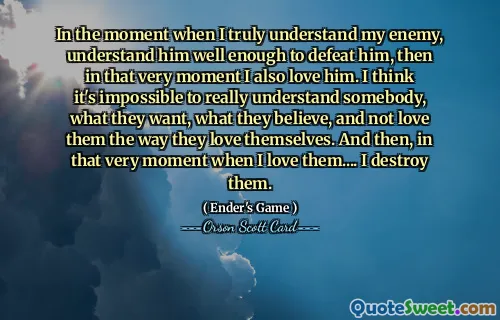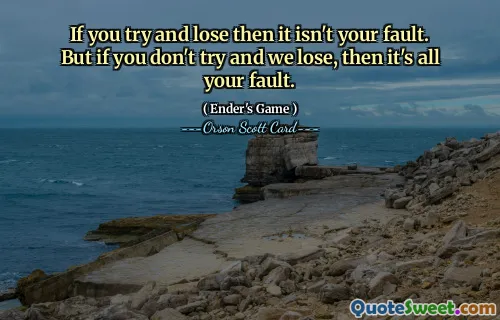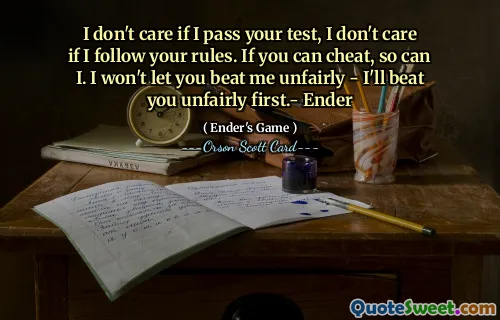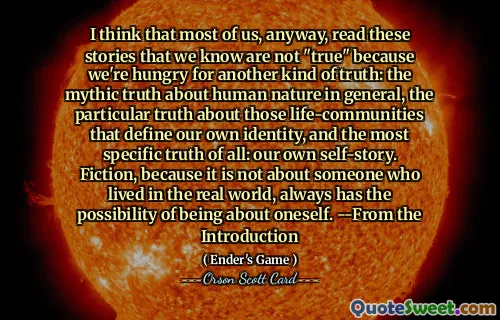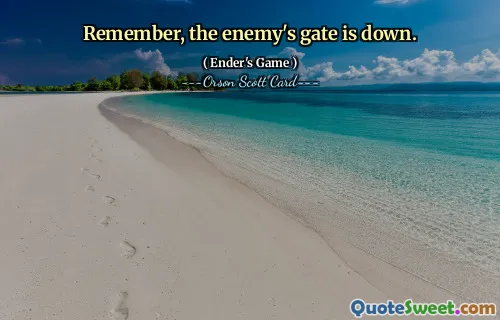
I know, you've been here a year, you think these people are normal. Well, they're not. WE'RE not. I look in the library, I call up books on my desk. Old ones, because they won't let us have anything new, but I've got a pretty good idea what children are, and we're not children. Children can lose sometimes, and nobody cares. Children aren't in armies, they aren't COMMANDERS, they don't rule over forty other kids, it's more than anybody can take and not get crazy.
The quote from "Ender’s Game" highlights the psychological strain placed on young individuals who are thrust into roles of significant responsibility and authority, suggesting that the environment they inhabit is far from ordinary. The speaker reflects on the burden of leadership among peers, emphasizing that the emotional weight of commanding others is too much for children to bear, pointing out the stark difference between children and adults, especially in high-stress scenarios like warfare.
This sentiment underlines a critical theme in the novel: the loss of innocence and the harsh realities that these young characters face as they are groomed for conflict. The acknowledgment that they are not just kids but are pushed into complex, often sinister responsibilities serves as a reminder of the moral implications inherent in using children as instruments of war. This commentary encourages readers to contemplate the effects of such expectations on their psychological well-being.

